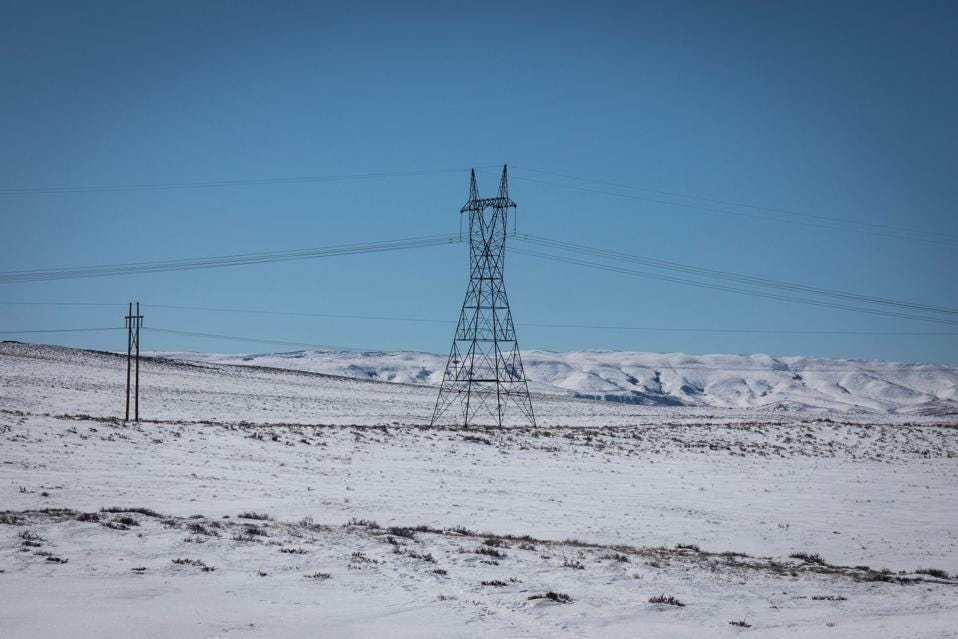High-power electrical lines, near the site of the proposed TransWest Express power project, in Maybell, Colorado, U.S., on Thursday, Feb. 17, 2022. Photographer: Chet Strange/Bloomberg © 2022 BLOOMBERG FINANCE LP
After polar vortex-created weather events put much of the US in a deep freeze during the first half of January, some are now predicting that the worst of the winter of 2023-24 is over. Only time will tell about that, but if it is the case, then it would come as a relief to those who have the task of managing America’s various regional power grids.
After numerous warnings and fretting about the possibility of shortages of generating capacity in some parts of the country leading into the winter, the happy fact is that, at least as of the end of January, US grids have performed admirably, with no blackout conditions experienced thus far. Texas grid managers at ERCOT issued conservation requests for the mornings of Jan. 15 and 16 due to concerns about tight peak hour conditions but ended up having just enough dispatchable capacity to skate through without upset.
One of the big success stories out of Texas’s experience was the fact that natural gas generation remained online throughout the coldest hours. Much of that capacity had frozen up during 2021’s Winter Storm Uri, often because ERCOT had cut off electric service to critical infrastructure like compressor stations and production facilities. The failure to properly identify those key installations in ERCOT’s system was flagged as a key weakness in Uri’s aftermath, and all stakeholders involved mounted an effort to correct it. January’s results showed it was a success.
Todd Snitchler, President of the Electric Power Supply Association (EPSA), told me in a recent interview that similar success stories happened on other regional grids. “I think that was consistent across the country,” he says. “I know the Utica and Marcellus had significant drop offs in production during Winter Storm Elliot in December 2022, and they didn't have that same problem this go around.”
Keep reading with a 7-day free trial
Subscribe to Energy Transition Absurdities to keep reading this post and get 7 days of free access to the full post archives.




